There are many different forms of protein available including whey, soy, and pea. Much like different cuts of meat and different butchering techniques, protein forms vary greatly from one another due to a number of reasons. When it comes to using pea protein vs soy protein as an exercise supplement, each of them has their own unique qualities and attributes that better in particular situations.
Soy protein is very unique in the fact that it is one of the only plant-based proteins to come with a full amino acid profile. Amino acids play a critical role in maintaining, facilitating, and aiding the various biological processes critical to our survival. One of the major downsides to soy protein is the fact that often times, these products are highly processed and can contain potentially harmful chemicals.
Research has also been conducted on the overconsumption of soy protein and its potential links to cancer. Not all soy protein products contain harmful preservatives or other additives which is why it’s important that you check the ingredient label before ingesting any soy protein supplement. While studies are still being conducted, it’s generally common knowledge that women should stay away from soy protein due to its adverse effects on estrogen production in the body.
Topic Contents
Understanding Pea Protein vs Soy Protein
Soy protein also affects the production of testosterone in men which is why you should always follow recommended dosage instruction when using it. On the upside, soy protein is great because it aids in increasing cognitive ability, improving digestive health, and boosting the immune system as cited by “HealthStatus.com”
Pea protein on the hand, is made from yellow peas and contains a high amount of BCAAs or branched chain amino acids which help in reducing fatigue and facilitating weight loss.
Pea protein is non-dairy, gluten-free, and lactose-free so it’s one of the most natural sources of plant-based protein out on the market. Pea protein contains all of the natural compounds that our bodies need in order to generate energy, because of its ability to provide complete nutrition, pea protein is often compared to eggs in terms of its protein content.
Pea protein is commonly used as a meal supplement or additive because it lacks some important amino acids key for healthy bodily function. Pea protein is possibly one of the easiest protein forms to digest and is great for post or pre-workout consumption. It helps sustain muscle density and even aids in reducing muscle soreness after exercising.
The Health Benefits of Protein and How the Body Uses It
Protein typically contains 20 different amino acids. The body naturally produces 12 of those acids and the remaining 8 need to be consumed through your diet. These are the “essential” amino acids.
Most people require around 35-60 grams of protein every day, which isn’t very much, really. A lot of people claim that whey or whey protein is the better source, but I would like you to reconsider. Plant proteins are an excellent protein source and can be a great addition to your overall healthy diet and regime.
What Should You Consider When Opting For A Plant-Based Protein?
- The cost. All proteins consist of similar stuff, so shop by price and budget.
- Taste and texture. This is where the plant protein you choose will have the biggest impact. Certain protein sources tend to lend themselves naturally to different textures. (This is especially true if you love protein shakes as much as I do!)
- The use of additives. Plenty of protein manufacturers mix their powders with various bulking agents, artificial sweeteners, and preservatives. These can detract from the nutritional value of the powder.
- Organic vs inorganic. Protein powders are usually purified, but any food with a high oil content (such as soy) is processed with a toxic substance called hexane. Foods that have been processed in this way lead to lower percentages of protein extraction. On the other hand, hexane is forbidden to be used in
organic food.
Animal vs Plant Proteins
These proteins differ in the types of amino acids they contain. Also, animal proteins contain more sulfur-type amino acids such as methionine. These constituents metabolize into sulfuric acid which the body has to work at neutralizing.
Different Types of Soy Protein vs Soy Protein
Soy Protein
Although it has come under fire of late due to GMO’s issues and different processing techniques, soy really is the most complete plant protein. There are continued studies on the safety and efficacy of soy protein from various sources. You can look for a soy protein isolate if you want the purest form, or simply choose a soy protein powder to meet your needs.
Soy protein also boasts a long track record of great health benefits such as delaying menopause, aiding in lowering blood pressure and lowering cholesterol. I will, of course, keep you in the loop on any updates when it comes to the safety and efficacy of all protein products.
Pea Protein
This protein is beginning to be used more and more. The reasons, though, are somewhat surprising. Pea protein is often spoken of as a new high-quality protein. But in truth, it’s favorable as it’s not as pricey as other protein supplements. So if you’re on a budget, pea protein is a good way to maintain a degree of quality standards while reducing costs.
Many people ask if vegan proteins are a complete protein? This question comes from the dated research that vegetable proteins are not complete proteins in an of themselves. Pure pea protein does contain all the essential amino acids, making it a complete protein.
The different manufacturing processes can lead to different amounts of phytic acid in proteins and this, in turn, can affect nutrient absorption.
Protein, overall, is essential for our health and it’s a valuable source of energy. You can meet the daily protein requirements by consuming animal products like milk and meat, but you can also consume your daily requirements through supplements.
Pea protein boasts a high digestion rate and can be used to complement non-dairy foods, beverages, pasta, and various meal replacement shakes. It also helps to regulate appetite and reduce weight. The chains amino acids that it contains help to restore muscles and also treat some chronic disease like kidney problems.
Soy Protein vs Pea Protein for Sports: Comparison
Both of these protein forms have their own individual benefits when it comes to energy production and muscle development in sports. This section is going to give you a breakdown of the individual benefits that soy protein and pea protein offer for athletes or anyone who lives an active lifestyle.
Soy Protein for Sports
Soy protein is great for athletic people who want a cholesterol-free source of low-fat protein. Soy protein contains a lot of minerals which are beneficial to the body and its function which is great for athletes. Soy protein can also be used as a meal replacement supplement because it contains a full-profile of essential amino acids.
While soy protein does not provide any “added” benefits to sport or athletic performance, it is a great all-natural protein that provides a clean source of some of the most important vitamins and minerals.
All information stated previously is based on research conducted by Michigan Medicine at University Of Michigan
Pea Protein for Sports
Pea protein is a very powerful supplement that can be added to a variety of existing protein formulas. In sports, athletes typically use whey protein as their primary sources of nutrition. Pea protein when combined with other sources of natural nutrition like brown rice protein, has the same amino acid content as whey protein.
The benefit to this is that pea protein does not contain any preservatives or animal products providing a cleaner source of nourishment. This can help athletes maximize performance during training maintain a healthy body fat ratio.
All information stated previously is based on research conducted by Michigan Medicine at University Of Michigan
FAQs about Pea Protein vs Soy Protein
Q: Can I use pea protein as a meal replacement?
A: While pea protein is rich in a lot of nutrients, it does lack some key minerals that would make it otherwise a great meal replacement option. It’s recommended that you use pea protein as an additive to your existing protein supplement, not for standalone use.
Q: Is it ok to mix soy and pea protein together?
A: Studies on the effects that pea and soy protein have on the body when combined have yet to be conducted. Being that both protein forms are plant-based, one can assume that it would be safe however that is not a verifiable claim and you would receive no real benefit by doing so.
Q: Can I use soy protein as a meal replacement?
A: Yes, soy protein is the perfect plant-based meal replacement supplement due to its high concentration in amino acids and other protein sources. Soy protein can be used as a standalone supplement with no added sources because of its potency.
Q: Is soy protein good for weight loss?
A: Yes, by providing your body with a pure source of amino acids and other essential vitamins soy protein helps reduce hunger cravings. It also aids in reducing body fat production due to its plant-based nature that doesn’t require the digestion of extra fat or tissue.
Q: Is pea protein good for weight loss?
A: Yes, pea protein is an optimal weight loss supplement due to its high BCAA concentration. Pea protein aids in maintaining muscle while reducing fat because it’s plant-based and free of products.
Traditional protein supplements that use animal products contain extra substances which your body must break down to absorb the protein content. With plant-based protein sources, your body easily converts the digested nutrients into usable energy. The purity of plant-based protein is one of the key reasons why many non-vegans use it as well.
Plant-based protein sources like pea and soy have another advantage over traditional animal-based protein. That is that they contain high amounts of fiber which is only found in plants, fiber helps your digestive system which is very important when trying to exercise or maintain fitness goals. Research conducted has proven that consuming more animal protein puts you at risk for developing cardiovascular diseases at a much faster rate.
This is also one of the reasons that people love plant-based protein because it contains very little to no cholesterol content so you’re getting a raw source of nutrition. By eating more plant-based protein, you cut down on the wear that high-cholesterol animal products put on your body. This leads to reduced stress when your body needs to convert energy which helps minimize the risk of issues like cardiovascular problems.
Plant protein also contains antioxidants and other vitamins which you won’t find in animal-based protein supplements. This allows you to rid your body of toxic substances and filter out impurities all while building muscle and losing weight. if you want a serious source of all-natural protein that doesn’t contain any harmful preservatives or other chemicals, soy and pea protein are the perfect option.
For vegetarians and vegans, plant-based protein gives you the ability to receive all of the benefits that traditional protein offers and much more. The cleanliness of ingredients and powerful plant minerals contained in pea protein and soy protein can provide your body with enough energy and strength to achieve anything.
To maximize your plant-based protein consumption, mix protein sources to ensure that you’re receiving all of your vital nutrition. There are a lot of great soy protein and pea protein supplements out there, use the tips and information in this article to help you purchase the right plant=based protein option for your needs.
All of the research studies and medical related information mentioned in this article comes courtesy of “MedicalNewsToday.com”
Final Say
Soy protein does contain high allergens and can’t really be considered as a good alternative. The more soy you consume the higher your chances of developing allergies. And if the phytate content isn’t removed, soy protein tends to prevent the absorption of major minerals, including calcium.
If this protein is not fermented, it can also contain enzyme inhibitors which can result in a blockage in the enzymes needed to digest protein. In turn, this will lead to the formation of gas and the promotion of conditions in the pancreas.
I recommend sticking to a pea protein supplement. While there are some good soy supplements with strong track records, I’d rather take my chances with a pea protein based product.
For starters, I would recommend checking out Source Naturals Pea Protein Power, just to see if you like it.
Alt Protein Team is a team of professionals and enthusiasts committed to bringing you the most up-to-date information on alternative protein, health and wellness, workouts, and all things health-related. We’ve reviewed a lot of products and services so you don’t have to guess when you spend your hard-earned money on them. Whether you want to shed some pounds, build lean muscle or bulk, we can help you figure out what you need to do and what you need to have to achieve your goals.

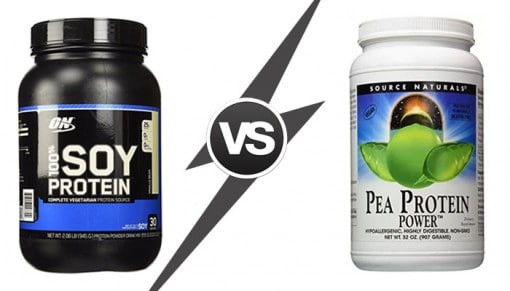
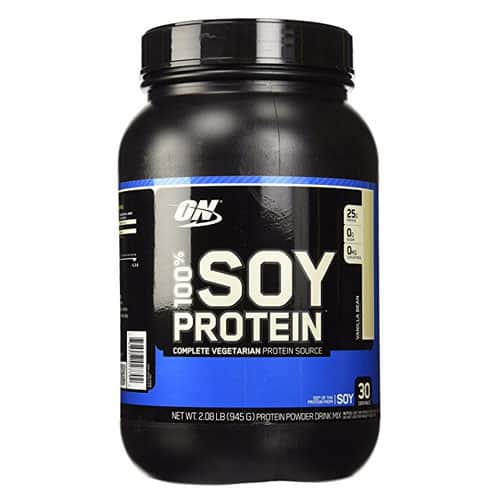

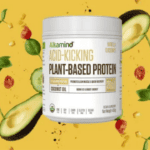
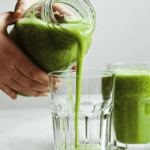
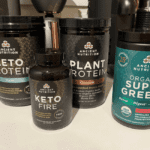
![Protein Powder Recall Watchlist - Whey Protein Recalls [Updated] protein recalls](https://altprotein.com/wp-content/uploads/2018/10/protein-recalls-150x150.jpg)


In my humble opinion, Source Naturals sells a good pea protein product with the consistency of soy isolate and satisfying taste. It seems clean to me….
Yes – that’s a good option too!